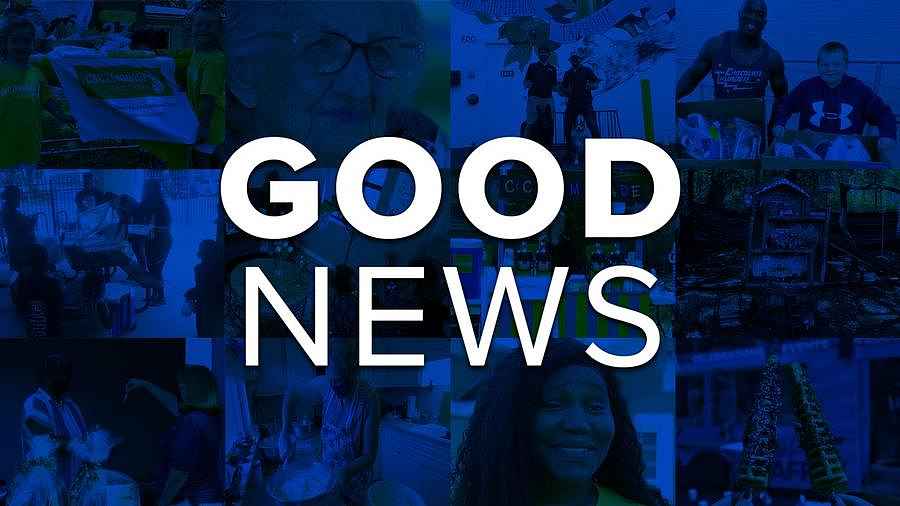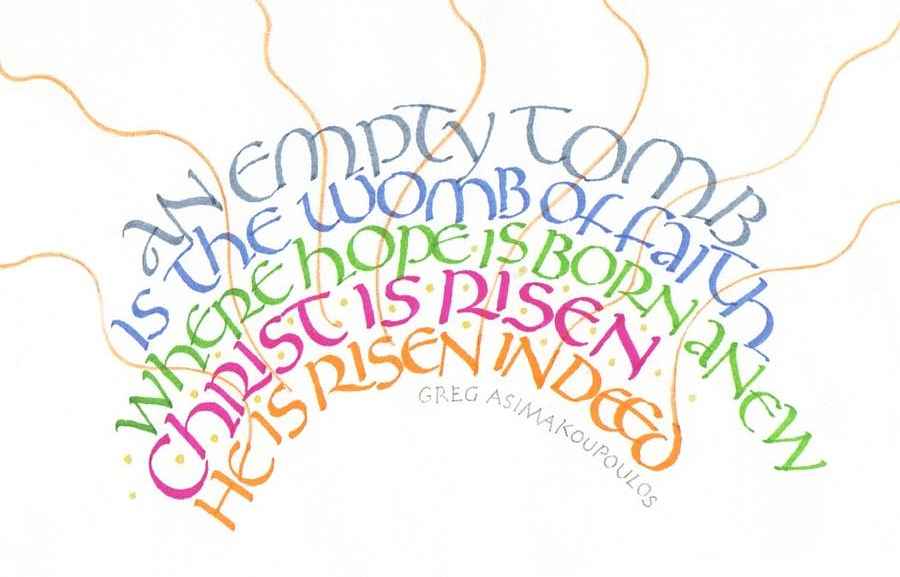
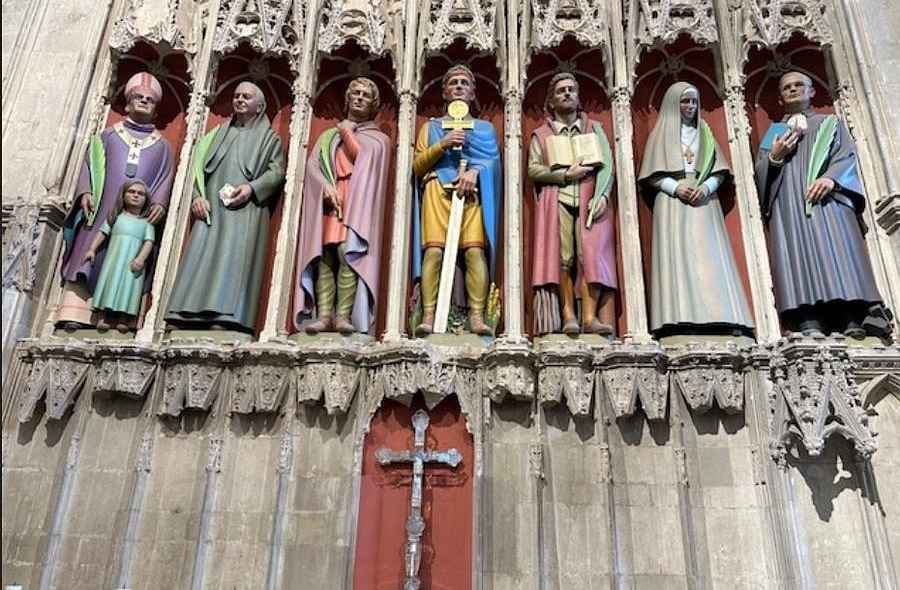
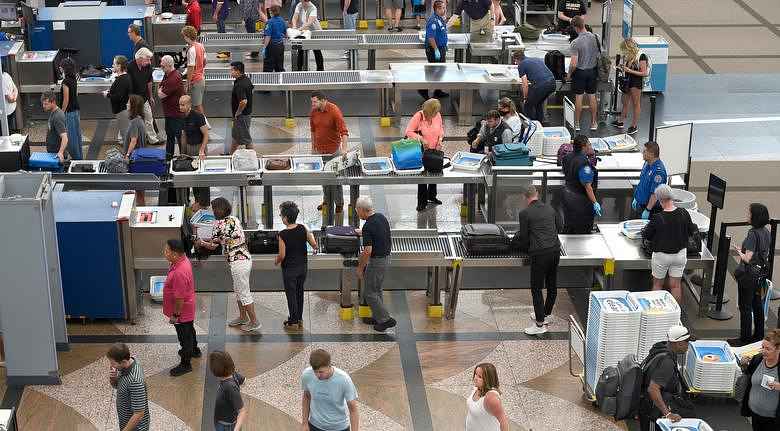

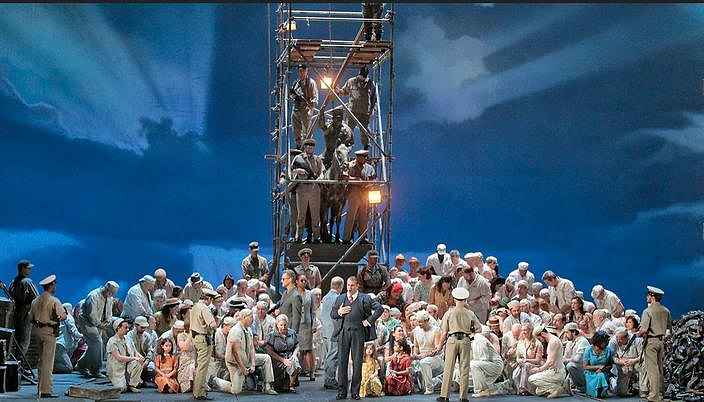

See listing of Recent and Most Popular articles on the Home Page
My World
Category: News & Current Events / Topics: Achievements • COVID-19 • Innovation, Invention, Creativity • Inspiration • News • Social Issues
It's Not All Bad
Posted: January 3, 2021
20 things that made the world a better place in 2020…
Editor's Note: This article provides a good illustration of a point made in the article this week, "Unprecedented, Not!," which calls us to look beyond the physical and mental lock-downs brought on by the COVID pandemic, first with a sense of history and perspective, but also with a sense that good things continue to abound. That's what this article by Nicole E. Kobie illustrates. It first appeared on WIRED on December 18, 2020. Most of the twenty examples we expect will be met with universal agreement, others are more debatable, but we suggest you respond with dialogue, reflection and engagement. Kobie writes from a UK/European perspective. What would you add to the list from events where you live? And, most importantly, what can we all do in 2021 to help make the world a better place?
This is not a year we'll look back on fondly. It began with Australia on fire and ends with more than 1.5 million dead in a pandemic. But there have been bright points in this annus horribilis. While many of us saved lives by hunkering down at home watching Netflix, a communal act of selflessness that shouldn't be soon forgotten, progress was made in science, the environment, and even politics – Biden won! We can buy lab-grown meat! British beavers built a dam for the first time in 400 years! Here's our rundown of the best news to come out of 2020.
The world's first mRNA vaccine was made in less than a year
The world's medical and pharma scientists have never made a vaccine as quickly as it did this year – and we got three out of the bargain, with more to come. But the BioNTech and Moderna vaccines will not only let us emerge from lockdown, they're also the first using messenger RNA, proving that vaccine technology works. That not only opens the door for its use against existing diseases but also means we could more quickly make vaccines to fight future pandemics – because we may have to do this all over again someday. Read more at WIRED.
Lab-grown meat on sale for first time
The era of slaughter for protein could be coming to an end, with the Singapore Food Agency approving for the first time the sale of lab-grown chicken. Made by American company Eat Just, the cells for the "chicken bites" are harvested from live animals and grown in a bioreactor. Though foetal bovine serum is still used in the process, the company plans to switch to a plant-based growing medium for its next production line. Read more at The Guardian
DeepMind solves 50-year-old protein folding problem
DeepMind's AI has accurately predicted protein shapes from their sequences alone, a tough task that normally requires lengthy, expensive lab experiments. While the AI, known as AlphaFold, couldn't unpick all protein structures, it has helped answer questions that have long challenged researchers – and could herald major changes in medical research. Read more at Nature
Nuclear fusion could give us unlimited clean energy
Researchers are building a star on Earth in an attempt to create nuclear power without the radioactive waste. The Joint European Torus (JET) will begin work next year, smashing together hydrogen atoms to generate energy and heat, which could eventually be harvested to generate electricity. Read more at WIRED
Kiwis gift Remarkables land to nation
Dill and Jillian Jardine could have sold their 900 hectares along the shore of Lake Wakatipu in New Zealand's Remarkables mountain range to developers. After all, the region is popular among the remarkably wealthy, including PayPal and Palantir founder Peter Thiel. Instead, the farming couple donated it to a local trust as a park for the enjoyment of everyone, not just billionaires. Read more at The Guardian
Beavers build first dam in four centuries
The National Trust released beavers into the wild in January, after the buck-toothed creatures went extinct in England four-hundred years ago. Efforts to return the animals have found success with beavers in Scotland relocated to the Holnicote Estate in Exmoor, where they've settled in well enough to chew up a few trees and assemble a "modest but… incredibly special" dam, according to the Trust. Read more at the BBC
Spider rediscovered in Surrey
Mike Waite of the Surrey Wildlife Trust spent two years in the dark tramping around a Ministry of Defence site, searching for a specific species of spider not seen in the UK since 1999. But in October, he spotted it: a great fox-spider. "It's a gorgeous spider, if you're into that kind of thing," he said. The two-inch creature doesn't build a web, instead chasing beetles and smaller arachnids in order to immobilise them with venom that liquefies their organs. How very 2020. Read more at The Guardian
First new coral reef found in 120 years
Scientists mapping the seafloor north of Australia's Great Barrier Reef made a massive discovery: a new reef that's taller than the Empire State Building. It's the first such coral structure to be found in the region in 120 years, and aided by an underwater robot, the year-long exploration journey also discovered 30 new species of sea life, including a 150-foot predator string – yes, that's right – known as a siphonophore. Read more at the BBC
Pandas have sex after decade-long wait
When the pandemic hit, Hong Kong's Ocean Park zoo shut to visitors. Several weeks later, perhaps enjoying their new-found privacy, pandas Ying Ying and Le Le did something zookeepers had been trying to inspire for ten long years: they had sex. The mating doesn't appear to have led to a pregnancy for Ling Ling, but getting it on after ten years of ignoring each other is encouraging to those in stale long-term relationships everywhere. Read more at VICE
There's a baby boom – for elephants
The Amboseli National Park in Kenya reported more than 170 calves by the end of summer, versus 113 in all of 2018 – including two sets of twins. The pachyderm pregnancy peak followed heavy rain the previous year, which means better grazing and more successful births. Alongside the elephantine baby boom, Kenya has said that the rate of poaching has fallen to just seven – down from 80 in 2018 – with numbers of the animals rebounding from 16,000 in 1989 to more than 34,000. Read more at NPR
Painting turbine blades slashes bird deaths
The shift to wind power is good news for the planet, but bad news for birds that fly into the blades of turbines at onshore wind farms. Researchers at the Norwegian Institute for Nature Research have found a potential solution: painting one of the three rotor blades black to make them easier to see. And it worked, reducing bird strikes by 70 per cent – not bad for a lick of paint. Read more at the BBC
UK record coal-free run tops 67 days
67 days, 22 hours and 55 minutes – it's the longest the UK has gone without coal-generated power since the industrial revolution. The record run came to an end mid-June only because a north Yorkshire power station fired up a coal unit for maintenance. The rest of the energy mix during the two-plus months was dominated by renewable energy at 36 per cent, followed by gas at 33 per cent and nuclear at 21 per cent. Read more at The Independent
Enzyme eats through plastics
Plastic waste is choking the planet, but researchers at the University of Toulouse: have found a mutant bacterial enzyme that will happily chew through it all, breaking it down for easy recycling into new plastic materials. The enzyme was originally discovered in a compost heap of leaves, though it needed some tweaking to optimise its ability to break down plastic. The mutated version managed to degrade a tonne of waste plastic in ten hours. Read more in The Guardian
SpaceX's first launch with humans
Elon Musk's SpaceX started the commercial space flight era by successfully launching a Falcon 9 rocket carrying the Crew Dragon capsule and two Nasa astronauts, Doug Hurley and Bob Behnken, to the International Space Station (ISS). The Falcon 9 rocket has previously ferried cargo to orbit, but the trip marks the first private space launch with humans aboard – and the beginning of private space flight, including tourism. Read more at WIRED
Porn starts to consider ethics
Pornhub removed two-thirds of the videos on its site – some ten million clips – after an investigation by the New York Times revealed some of the user-uploaded clips featured children and other abuse, sparking Visa and Mastercard to halt processing payments. From now on, the site will only permit verified users to upload videos, perhaps finally kickstarting an era of ethics in mainstream porn sites. Read more at Motherboard
UK gets its first tech union
United Tech and Allied Workers set up a branch in the UK amid wider activism in the sector in the US, with walkouts at Facebook, Google and Amazon. The aim is to give workers more power to hold their employers to account without having to quit and find another job – not easy during a pandemic. Read more at WIRED
Art sculpture saves train driver
Public transport met public art in dramatic, life-saving fashion when a Rotterdam metro train crashed through buffers at the end of the elevated line in the Dutch city. The driver's carriage was saved from falling the 10m to the ground by a public art installation by Maarten Struijs, propped up by one of two whales' tails. Struijs called the accident "rather poetic" and he's not wrong: the name of the work is Saved by a Whale's Tale. Read more in The Times
Kamala Harris becomes first female vice president
The US has its female vice-president, and she's a woman of colour known to her step-kids as "Momala". In a year of difficult politics, and amid a backdrop of racial tension, the US managed to make a major step forward by electing Kamala Harris as the first female vice-president. Read more pretty much anywhere, but start with the New York Times
Argentina set to legalise abortion
Abortion remains illegal across most of South America, but Argentina is set to become the first large nation and only the fourth on the continent to allow women the right to choose. It follows the lead of Cuba, Uruguay and Guyana, though UN research suggests more than six million abortions still happen in the region each year, the majority of which are unsafe for women. The bill still needs to be approved by the senate later in December. Read more at The Guardian
Endurance runner carries disabled friend to top of Mount Olympus
Eleftheria Tosiou always wanted to scale Mount Olympus, the highest peak in Greece. The wheelchair-bound student reached the goal with the help of her friend, long-distance endurance runner Marios Giannakou, who scaled the 2,917-metre mountain with Tosiou strapped to his back. “I have never done something more beautiful,” said Giannakou. “I think it has completed me as a person.” Read more at Reuters
Search all articles by Nicole E. Kobie
Posted: January 3, 2021 Accessed 477 times
![]() Go to the list of most recent My World Articles
Go to the list of most recent My World Articles
![]() Search My World (You can expand the search to the entire site)
Search My World (You can expand the search to the entire site)
![]() Go to the list of Most Recent and Most Popular Articles across the site (Home Page)
Go to the list of Most Recent and Most Popular Articles across the site (Home Page)
 Loading requested view...
Loading requested view...